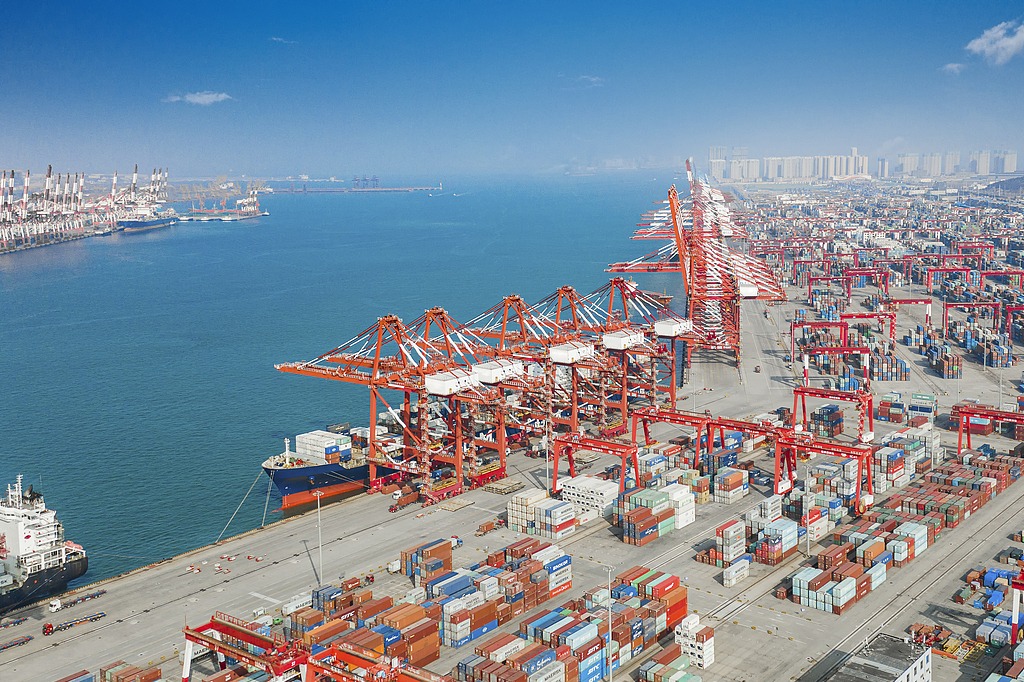Chinese firms eye expansion overseas despite COVID
By OUYANG SHIJIA | China Daily | Updated: 2021-06-17 09:06

Chinese enterprises are ramping up efforts to expand business activity overseas despite COVID-19 disruptions, industry experts said.
Wang Qian, head of talent solutions at LinkedIn China, said Chinese companies with overseas operations have withstood coronavirus disruptions relatively well and have already resumed normal production and operations, with hiring levels remaining stable.
Wang pointed to data from LinkedIn, saying Chinese enterprises have sped up their expansion in emerging markets such as Southeast Asia amid the coronavirus outbreak.
"While hires in the United States previously accounted for 58 percent of the number of overseas recruits, the figure has since dropped to around 30 percent. However, the figure for Southeast Asia increased from 6 percent to 27 percent last year. Meanwhile, recruitment in Europe remains stable," Wang said.
She said Chinese enterprises are in urgent need of foreign talent with technical, management and language skills as well as legal minds overseas, and companies with offshore operations need to have a better understanding of local culture and values while fostering inclusive corporate cultures.
Wang explained that Chinese enterprises have gained a huge following in overseas markets, providing career development opportunities for young professionals.
"After years of development, China ranks among the top in terms of artificial intelligence, cloud computing, the internet of things, mobile apps and many other emerging sectors," Wang said, "Especially in emerging markets such as the Middle East and Southeast Asia, China's internet and mobile app enterprises are widely welcomed in local markets."
Compared with large companies, Wang believes small and medium-sized enterprises have gained key advantages in expanding overseas amid the pandemic.
"Under current circumstances, many large companies are gearing up to accelerate their transformation in a bid to better adapt to the changing market, and SMEs are more flexible in this regard. For instance, there are three types of companies that are actively expanding their presence-gaming, cross-border e-commerce and mobile apps. These young tech companies are usually SMEs, tending to be ahead of large companies in terms of overseas expansion nowadays," she said.
In fact, the pandemic has pushed Chinese enterprises to accelerate their pace of global expansion, said Cai Xiaodan, general manager of LinkedIn China marketing solutions. "After the virus outbreak, we've seen more Chinese firms in fields such as AI, smart robots and healthcare ramping up efforts to tap global markets, and some SMEs will also choose to seek new growth opportunities overseas instead of being locked in fierce competition in the domestic market."
According to a new report released by LinkedIn China and a think thank on China trade under the China Council for the Promotion of International Trade, Chinese enterprises with overseas operations resorted to countercyclical hiring, with 88 percent meeting demand for talent, especially in sectors such as manufacturing, infrastructure construction, wholesale and retail, internet and financial services, the report said.
According to the report, 91 percent of the surveyed companies said they have not laid off staff since the contagion's outbreak, and 23 percent said they have increased recruitment.
"As China's economy orients toward sustained high-quality development, innovation and brand reputation will become the two driving forces for Chinese companies to transform and globalize," said Lu Jian, president of LinkedIn China. "Integrity, branding, innovation and talent are key to reaching a new stage of supply-side reform and promoting the high-quality global development of Chinese enterprises."
Lu Ming, deputy director of the Academy of China Council for the Promotion of International Trade, said while China has gained competitive advantages in competing globally, many Chinese enterprises still lag behind foreign companies in terms of rich experience, operational management and innovation capabilities as well as international talent.
"To seek improved development, Chinese enterprises should integrate their company culture with local culture and hire more local talent," Lu said. "For SMEs, they need to conduct relevant research in the early stage, have a better understanding of the local culture and business environment and then make a detailed development and business plan in overseas markets."
























